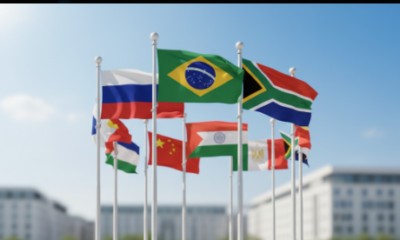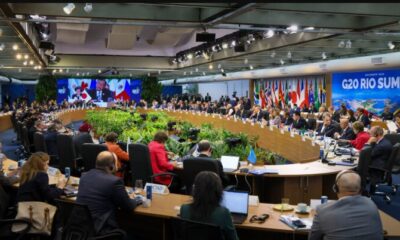Quite apart from CrowdStrike or the lost contents of the private email server that Hillary Clinton used when she was secretary of state, President Trump is not wrong to question the investigations that have been directed against him and his associates and to wonder what role partisan innuendo played in supporting those investigations. In 2016, Mr. Trump’s political enemies sought private intelligence — “opposition research” — that might damage his campaign, and one dossier purporting to connect Mr. Trump and his campaign to Russia that was put together by a former British spy, Christopher Steele, did play a role in F.B.I. requests for authority from the Foreign Intelligence Surveillance Court to wiretap the Trump campaign adviser Carter Page.
Intelligence agencies are meant to look for conspiracies, and in a sense they are conspiracies themselves. (Whether their activities are illicit depends in part on what exceptions to normal legal and moral rules you’re willing to make in the name of an assumed greater good.)
There is a great deal to be concerned about when the barriers between politics and intelligence break down, and the mixture of elements involved in giving birth to the conspiracy theory that Mr. Trump and his campaign were tools of the Kremlin is troubling. Those elements include an intelligence community and foreign-policy elite predisposed to view as subversive dissent from their own traditional views on the proper relationship between the United States and states like Russia; opposition research firms whose roles in blackening reputations are little known or understood by the public; foreign intelligence operatives, past or present, like Mr. Steele, who may not be bound by the norms that apply to Americans with intelligence backgrounds; and a national media that may be biased against Republicans and in favor of the opinions of their sources in government and intelligence.
That Mr. Trump’s agenda should be controversial and strongly opposed by those who disagree with him is to be expected. Sharp disagreements are not just proper but essential to a robust democratic system. However, especially where a transformative figure like Mr. Trump is concerned, it is important for those who resist the changes he would like to bring about to recognize that his sincere intentions are explanation enough for what he is doing. He does not have to be a Russian asset to do the things he is doing.
Political enemies will naturally impugn one another’s motives. They can do that, holding their foes to be wrong and even wicked, without imagining that they are wrong or wicked only because they are part of a conspiracy behind the scenes. But even where intelligence is concerned, this season of impeachment would be a good occasion to remember the most serious lessons of Watergate. Richard Nixon’s personal misdeeds paled in comparison to the intelligence community abuses uncovered by the Senate’s Church Committee and the new spirit of suspicion about secret agencies’ domestic activities, many of which were illegal and some of which were extraordinary abuses of human rights.
Conspiracy theories have been a feature of American politics since the beginning, as has the specter of foreign interference in our elections — originally a reason to be vigilant against French and British influence. But the Trump years have been clouded by too many conspiracy theories and not enough open debate about differing visions for the country. These differences are the legitimate stuff of politics, and they are best worked out at the ballot box, because no investigation or impeachment can resolve them.

 Entertainment1 week ago
Entertainment1 week ago
 Tech5 days ago
Tech5 days ago
 Tech5 days ago
Tech5 days ago
 General News3 days ago
General News3 days ago
 Business News2 days ago
Business News2 days ago
 Jobs2 days ago
Jobs2 days ago
 General News3 days ago
General News3 days ago
 Business News2 days ago
Business News2 days ago

